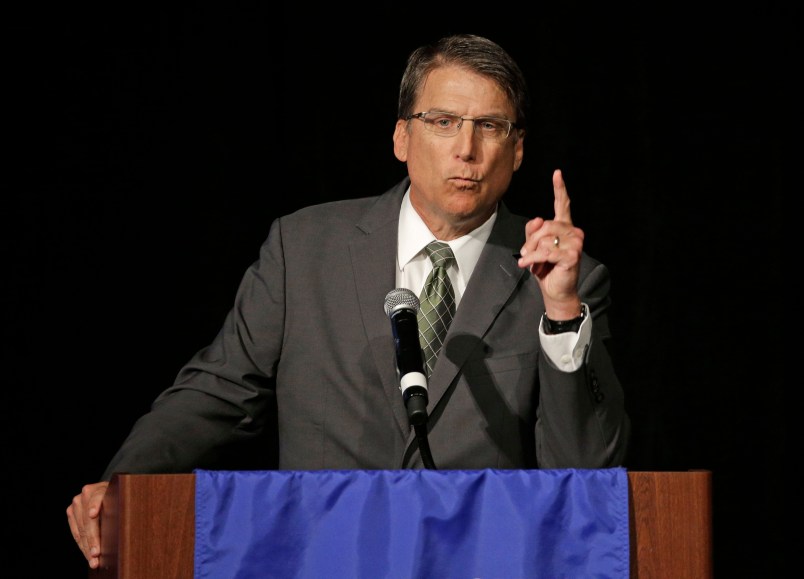RALEIGH, N.C. (AP) — North Carolina officials asked the U.S. Supreme Court on Monday to keep a voter identification requirement and 10 days of early voting for the November election, even after a lower appeals court ruled these changes illegally restricted voting by blacks.
Republican Gov. Pat McCrory said his lawyers and those for other officials, including some hired by GOP legislative leaders who championed the 2013 law, asked the court to delay enforcement of last month’s ruling by the 4th U.S. Circuit Court of Appeals. The delay would occur while attorneys draft an appeal for the justices to consider the inherent issues in the case more deeply.
The ruling struck down the photo ID mandate and returned early voting to 17 days.
The attorneys wrote that altering the voter laws would create voter confusion weeks before the election inNorth Carolina, a presidential battleground state with races for governor and U.S. Senate also on the ballot. The voter ID requirement already was used in this year’s primary elections.
“North Carolina should not be forced to scramble mere months before the general election to rejigger settled election plans at the 4th Circuit’s command,” the state’s attorneys wrote to Chief Justice John Roberts. Roberts receives such appeals for North Carolina matters.
A three-judge panel of the 4th Circuit already refused to delay their July 29 ruling, which found the Republican-led General Assembly enacted the law with intentional discrimination in mind. The court ruled the changes targeted black voters more likely to support Democrats.
McCrory has said the ruling is factually wrong and maligned the state, adding that requiring photo ID makes common sense and protects the integrity of elections at a time when people must show IDs all the time.
“The 4th Circuit’s ruling is just plain wrong and we cannot allow it to stand,” McCrory said in a release.
The appeals judges pointed out attorneys defending the law provided no evidence of anyone charged with committing in-person voter fraud. The legislature received racial data before the law passed about usage of the practices that were ultimately offered, according to the 4th Circuit ruling that overturned a trial court decision.
The new provisions “target African Americans with almost surgical precision,” said the 4th Circuit ruling, which also struck down provisions eliminating same-day registration during the early voting period and the counting of Election Day ballots cast by a person outside of their home precinct.
The state’s attorneys said Monday black voter turnout increased in 2014, the first year some of the changes took place. Voter ID also allows people having trouble obtaining a qualified form of ID to vote by providing other information.
“Neither the state nor its residents should be forced to suffer the additional indignity of being prohibited from carrying out the general election under laws that have so far proven to expand minority access to the franchise,” the lawyers wrote.
Groups who sued to overturn the law and their allies have said it’s time Republicans quit fighting in court— they’ve spend millions of dollars in outside legal fees — and ensure counties have enough money to meet the expected high turnout at their polls.
Not participating in the Supreme Court request is Attorney General Roy Cooper, a Democrat challenging McCrory in November. He said his office would no longer defend the voter ID law after the 4th Circuit decision.
While a majority of states require some voter identification, federal courts have recently been pushing back on tougher standards approved by Republican-controlled legislature. The U.S. Justice Department actively fought voter ID mandates in North Carolina and Texas.
Copyright 2016 The Associated Press. All rights reserved. This material may not be published, broadcast, rewritten or redistributed.






